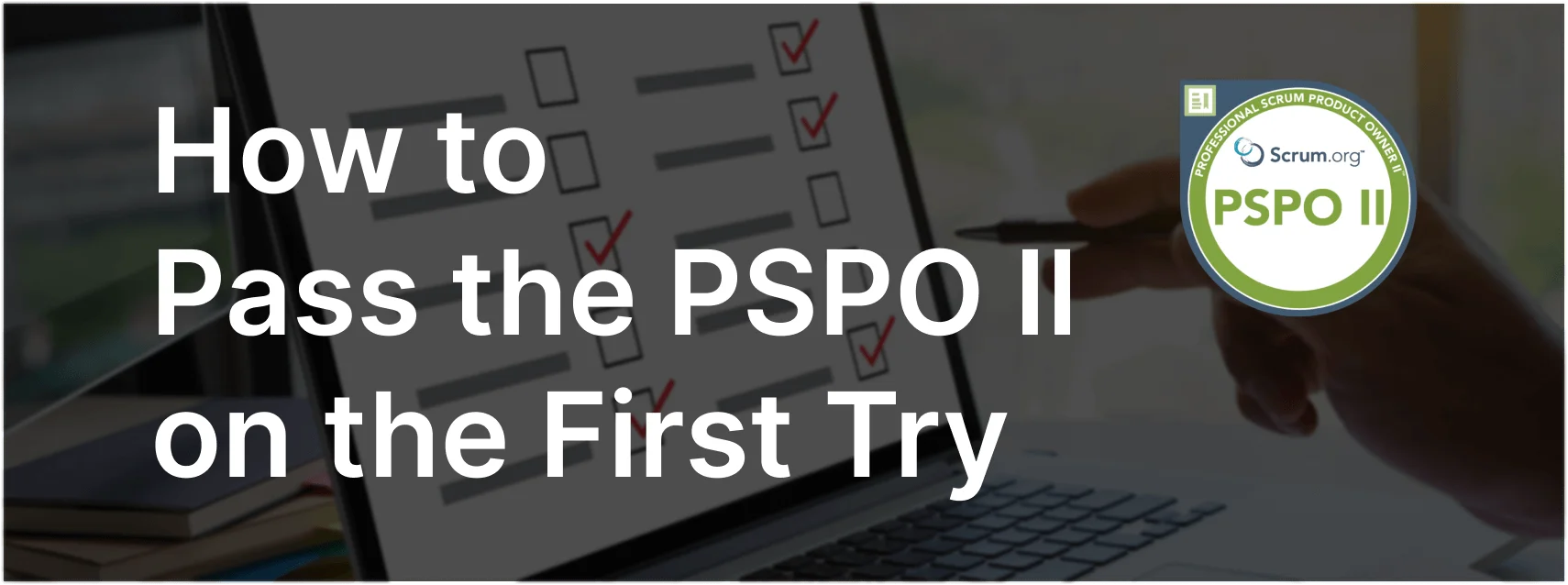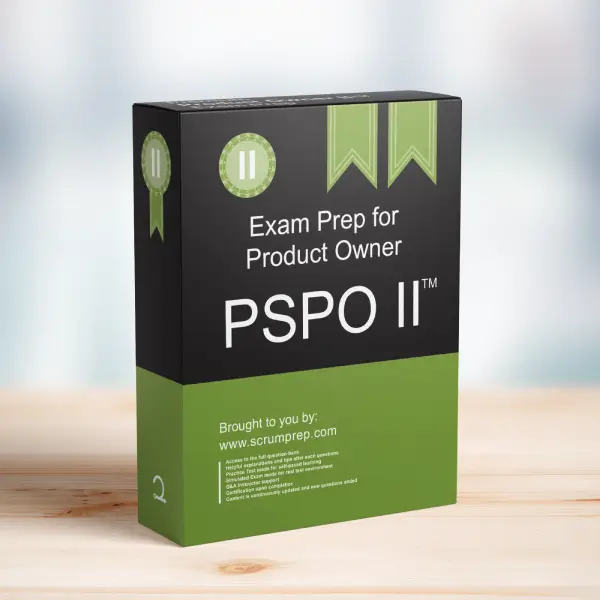Effective Product Ownership
Understanding the responsibilities and qualities of an effective Product Owner is crucial for successful product development. This article explores the key aspects of being an effective Product Owner and provides insights relevant to the PSPO II exam.
Exam Question
An effective Product Owner must:
(choose the best answer)
A. ensure that every stakeholder need is met.
B. be the “expert” opinion for all Product Backlog items.
C. ensure that the team is as productive as possible.
D. be the single point of contact for all stakeholders.
E. All of the above.
F. None of the above.
Correct Answer
B. be the “expert” opinion for all Product Backlog items.
Explanation
Correct Answer
B. be the “expert” opinion for all Product Backlog items:
An effective Product Owner must understand enough about each Product Backlog item to have an informed opinion. This expertise allows the Product Owner to make informed decisions about the order of the items, ensuring that the most valuable work is done first.
Incorrect Answers
A. ensure that every stakeholder need is met:
While it is important to consider stakeholder needs, it is not feasible to meet every single need. The Product Owner must prioritize the needs that align with the product vision and goals.
C. ensure that the team is as productive as possible:
While productivity is important, the Scrum Master primarily focuses on helping the team improve productivity. The Product Owner ensures that the work being done is valuable and aligned with stakeholder needs.
D. be the single point of contact for all stakeholders:
Although the Product Owner acts as a central communication point for stakeholders, being the “expert” on Product Backlog items is more critical for effective backlog management.
E. All of the above:
This option is incorrect as the Product Owner’s role is more focused on prioritizing and representing stakeholder needs rather than ensuring productivity or being the expert on all items.
F. None of the above:
This option is incorrect as being the “expert” opinion for all Product Backlog items is a key responsibility of the Product Owner.
Responsibilities in Scrum
- Product Owner: The Product Owner is accountable for maximizing the value of the product by managing and ordering the Product Backlog. They need to understand enough about each Product Backlog item to make informed decisions and ensure that the most valuable work is done first.
- Scrum Master: The Scrum Master supports the Product Owner by facilitating communication and helping the Scrum Team adhere to Scrum practices, thereby improving productivity.
- Developers: Developers work collaboratively with the Product Owner to refine Product Backlog items and ensure that the work being done is valuable and meets the Definition of Done.
Relevance to the PSPO II Exam
Understanding the key responsibilities of a Product Owner is essential for the PSPO II exam. This knowledge ensures that candidates can effectively manage stakeholder relationships and prioritize work to maximize product value.
Key Takeaways
- The Product Owner must understand enough about each Product Backlog item to make informed decisions.
- It is not feasible to meet every stakeholder need; prioritization is key.
- The Product Owner collaborates with the Scrum Team to refine Product Backlog items.
- Productivity is important but is primarily the focus of the Scrum Master.
Conclusion
An effective Product Owner is crucial for successful product development in Scrum. By understanding enough about each Product Backlog item and prioritizing their needs, the Product Owner ensures that the Scrum Team delivers valuable outcomes. For more information on preparing for the PSPO II exam, visit our PSPO II Exam Prep.



